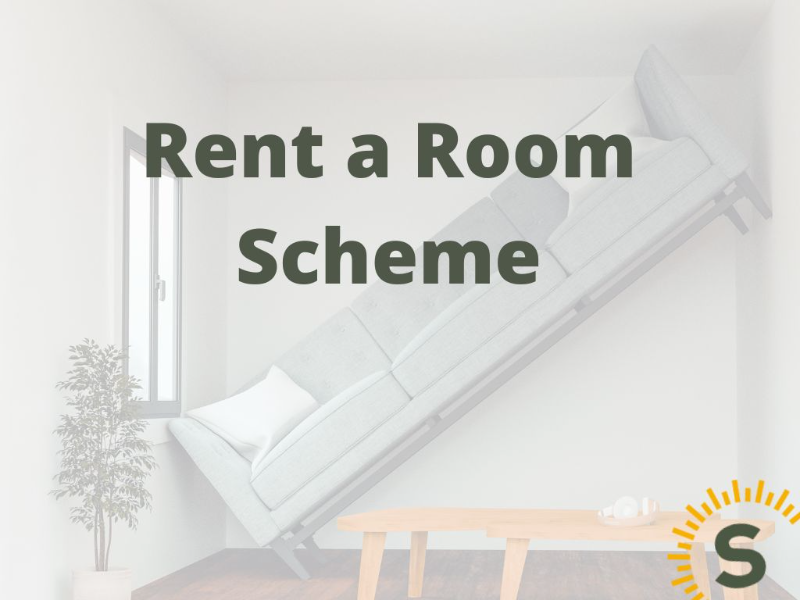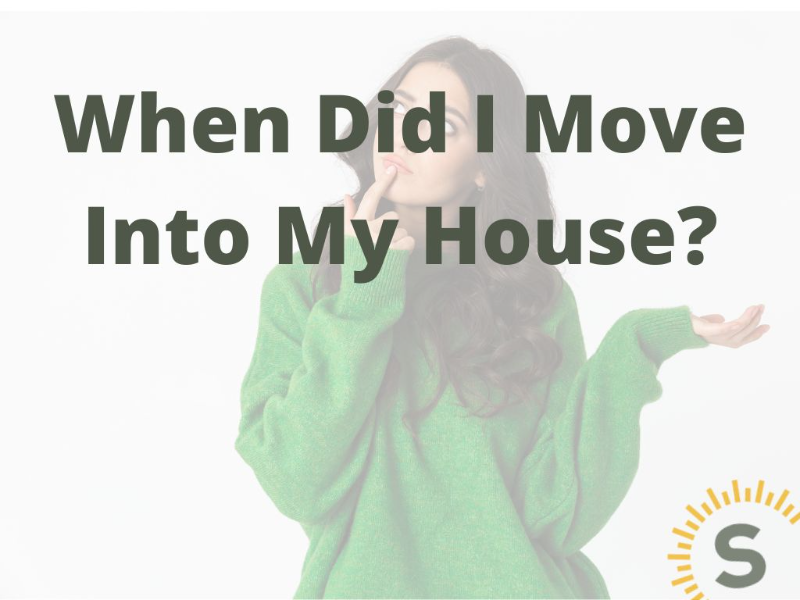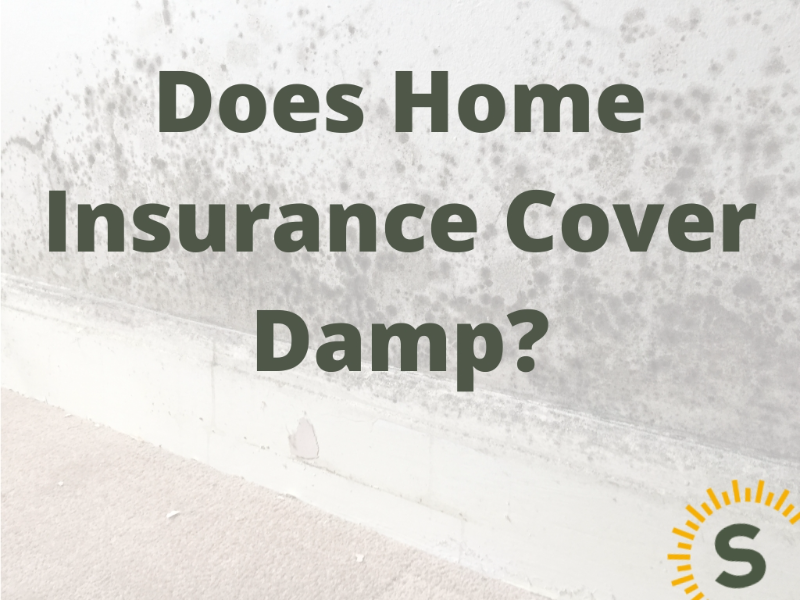
The Rent a Room scheme isn't new, but it is becoming more popular. As bills go up, homeowners are on the hunt for ways to generate extra income. Perhaps you are considering house hacking, or living on your own and looking for some company.
The Rent a Room scheme could be an option to solve those concerns. In this insight, we will cover what you need to know and how to utilise this tax free income.
The Rent a Room scheme lets you rent out a room in your home for tax-free income. You can earn up to £7,500, and if you stay below this limit, no tax return is required
For example, let's say you own a three-bedroom house in London and you decide to rent out one of the bedrooms under the Rent a Room Scheme. You charge your tenant £600 per month, which amounts to £7,200 per year. Since your rental income is below the £7,500 tax-free threshold, you do not need to pay any income tax on the rental income you receive from your tenant. However, if your rental income exceeds £7,500 in a tax year, you will need to pay income tax on the excess amount.
The scheme can be used if you:
The scheme can not be used if:
In 1992, John Major introduced the Rent a Room scheme to incentivise UK homeowners to let out their spare rooms. The scheme aimed to address the shortage of rental properties at the time by encouraging the creation of more supply
You can earn up to £7,500 by letting out a room in your property, without any further action required. If your rental income exceeds the limit, you'll need to declare it via self-assessment to claim your Rent a Room scheme tax relief. You're free to charge whatever you like for your room and accept a deposit, as long as it's agreed upon upfront with your tenant. You can also accept housing benefit as rent. You're responsible for council tax and should notify your local council if having a tenant means you no longer qualify for a single occupier discount. You may split utility bills proportionately with your tenant. If you plan to end the tenancy, you must serve your tenant a 'notice to quit', providing 4 weeks notice. You and your tenant can end the tenancy at any time by mutual agreement.
You can earn up to £7,500 per year tax free. If you jointly own the property, this limit is split across the owners. You must let HMRC know within a year of 31st January, if you do not intend to claim your tax free benefits. However, no action is required if you do.
If you earn over the threshold, you need to pay tax. You can do this in two ways:
You can change methods from year to year.
If you are over the threshold, either option you choose to pay tax, you will still need to register for self-assessment if you do not already do so.
If you are claiming benefits, you will need to check with HMRC how these are impacted.
| Rental Income | Income post tax without Rent a Room scheme (20% Tax) | Income post tax with Rent a Room scheme |
| £6,000 | £4,800 | £6,000 |
| £7,000 | £5,600 | £7,000 |
| £8,000 | £6,400 | £7,900 |
| £9,000 | £7,200 | £8,700 |
It is allowable to use AIRBNB to rent a room and benefit from the Rent a Room scheme allowance. You must be renting a room that is your home, it must be furnished and you occupy it. When listing your property on AIRBNB, you should list as a Private Room as opposed to a house for rent.
All other rules still apply and you must pay tax if you exceed the threshold.
No, Buy to Let mortgages are mot required to rent a room to a lodger. You should check the terms with your provider before agreeing a tenancy as they can differ between lenders. You will also need to review your home insurance as your existing policy could become invalidated.
No. If you remain under the rent a room scheme allowance, you do not pay tax on your income and it does not affect your eligibility to tax credits.
You only need to tell HMRC that you are renting a room if the income earned is above the allowance within the rent a room scheme of £7,500. Or, if your rental does not meet the Rent a Room scheme rules.
No. The room for let must be part of your main home. You can not use the rent a room scheme if you are renting out an outbuilding, separate flat, or annex.
For further information on the Rent a Room scheme can be found on the Gov.uk website: Rent a Room scheme

Stuart is an expert in Property, Money, Banking & Finance, having worked in retail and investment banking for 10+ years before founding Sunny Avenue. Stuart has spent his career studying finance. He holds qualifications in financial studies, mortgage advice & practice, banking operations, dealing & financial markets, derivatives, securities & investments.
 No minimum
No minimum  Free Consultations
Free Consultations
 No minimum
No minimum  No obligation consultation
No obligation consultation
 No minimum
No minimum  Free Consultations
Free Consultations
 No minimum
No minimum  No obligation consultation
No obligation consultation
 No minimum
No minimum  No obligation consultation
No obligation consultation
 No minimum
No minimum  Free Consultations
Free Consultations
 No minimum
No minimum  Coatbridge, Lanarkshire
Coatbridge, Lanarkshire Initial or Ongoing Consultation Fees
Initial or Ongoing Consultation Fees
 No minimum
No minimum  Initial or Ongoing Consultation Fees
Initial or Ongoing Consultation Fees
 £21,000 +
£21,000 +  Initial fee free consultation
Initial fee free consultation
 No minimum
No minimum  No obligation consultation
No obligation consultation
 No minimum
No minimum  Initial fee free consultation
Initial fee free consultation
 No minimum
No minimum  Initial fee free consultation
Initial fee free consultation
 No minimum
No minimum  No obligation consultation
No obligation consultation
 No minimum
No minimum  Initial fee free consultation
Initial fee free consultation
 £101,000+
£101,000+  Bishop's Stortford, Hertfordshire
Bishop's Stortford, Hertfordshire No obligation consultation
No obligation consultation
 No minimum
No minimum  Derry / Londonderry, County Derry / Londonderry
Derry / Londonderry, County Derry / Londonderry Free Consultations
Free Consultations
 No minimum
No minimum  Stockton-on-Tees, County Durham
Stockton-on-Tees, County Durham Free Consultations
Free Consultations
 No minimum
No minimum  Initial fee free consultation
Initial fee free consultation
 No minimum
No minimum  Cheltenham, Gloucestershire
Cheltenham, Gloucestershire No obligation consultation
No obligation consultation
 No minimum
No minimum  Initial fee free consultation
Initial fee free consultation
 No minimum
No minimum  Free Consultations
Free Consultations
 No minimum
No minimum  Initial fee free consultation
Initial fee free consultation
 £51,000+
£51,000+  Sheffield, South Yorkshire
Sheffield, South Yorkshire No obligation consultation
No obligation consultation
 No minimum
No minimum  Free Consultations
Free Consultations
 No minimum
No minimum  Stockton-on-Tees, County Durham
Stockton-on-Tees, County Durham Initial fee free consultation
Initial fee free consultation





Our website offers information about financial products such as investing, savings, equity release, mortgages, and insurance. None of the information on Sunny Avenue constitutes personal advice. Sunny Avenue does not offer any of these services directly and we only act as a directory service to connect you to the experts. If you require further information to proceed you will need to request advice, for example from the financial advisers listed. If you decide to invest, read the important investment notes provided first, decide how to proceed on your own basis, and remember that investments can go up and down in value, so you could get back less than you put in.
Think carefully before securing debts against your home. A mortgage is a loan secured on your home, which you could lose if you do not keep up your mortgage payments. Check that any mortgage will meet your needs if you want to move or sell your home or you want your family to inherit it. If you are in any doubt, seek independent advice.